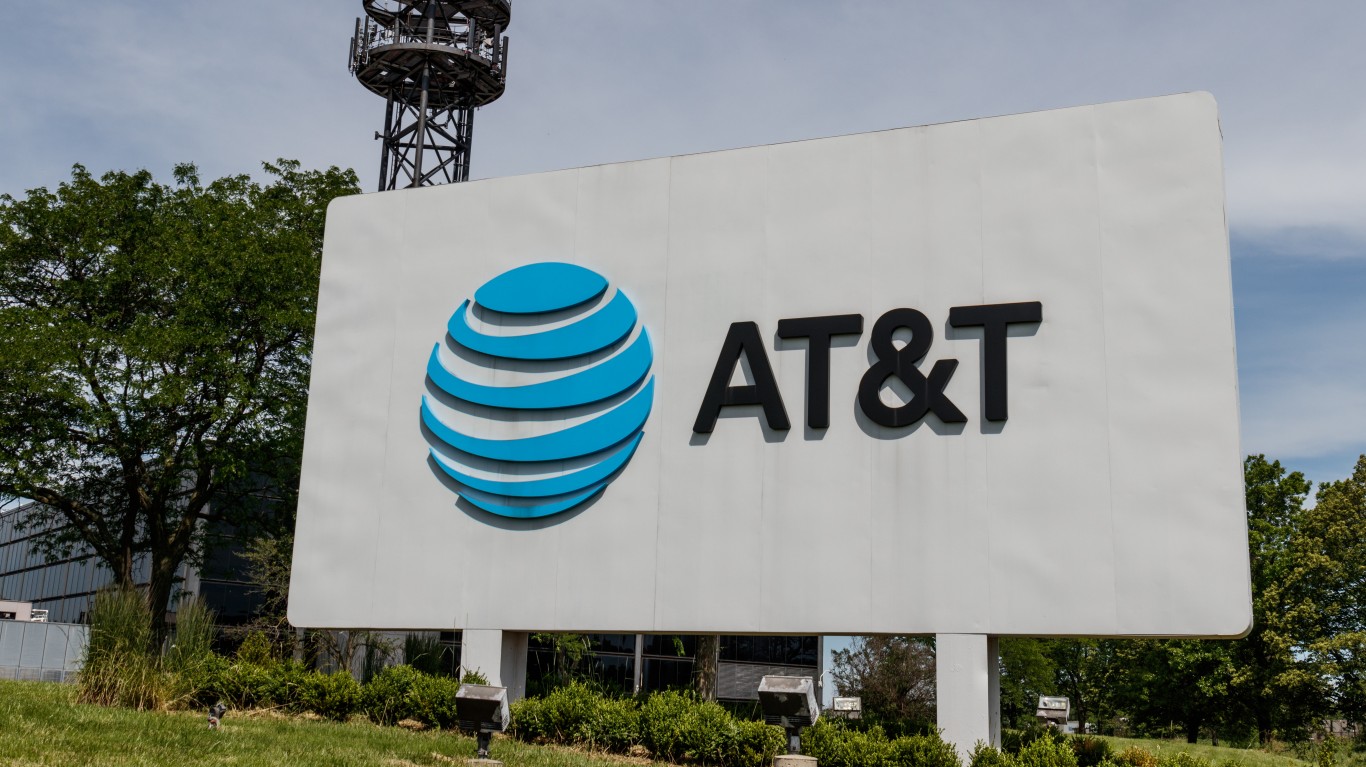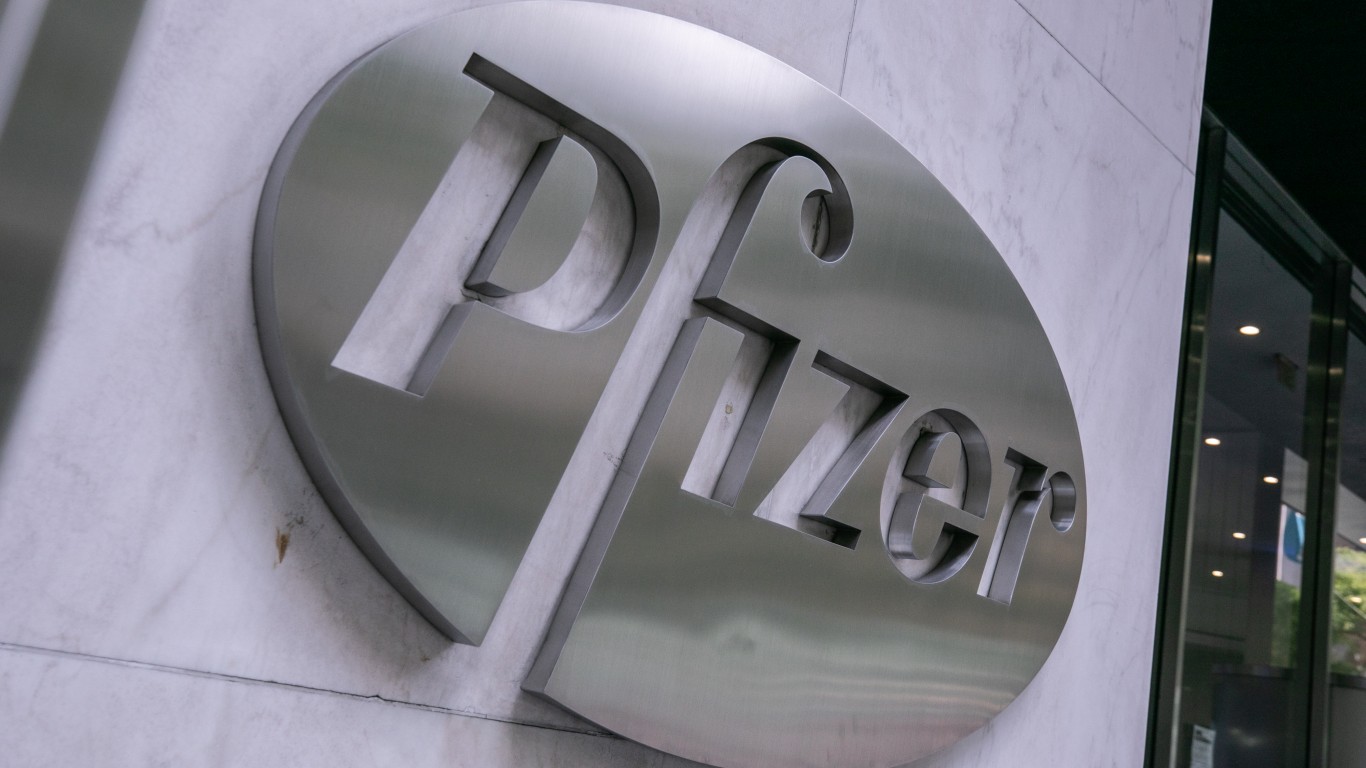
In mid-morning trading Monday, the Dow Jones industrials traded 0.971% higher, the S&P 500 was up 1.31% and the Nasdaq traded up 1.89%. All 11 market sectors traded in the green, with tech leading the way with a gain of around 2.5%.
Before U.S. markets opened on Monday, Synchrony Financial reported results that beat consensus estimates for earnings per share (EPS) and revenue. The bank’s provision for credit losses doubled year over year as charge-offs rose by 111 basis points to 3.48%. Shares were down 1.7% in mid-morning trading.
Baker Hughes missed both earnings and revenue estimates but issued in-line guidance for both the first quarter and the full 2023 fiscal year. Activity has picked up but remains below pre-pandemic levels. Crude oil producers are raising shareholder payouts, not drilling activity. That is why the shares were up 0.4% Monday.
Before markets open on Tuesday, D.R. Horton, General Electric, Halliburton, Lockheed Martin and Raytheon will report quarterly results. Three other companies are also on deck for earnings reports first thing Tuesday: Johnson & Johnson, 3M and Verizon. Also watch for upcoming reports from ASML, Microsoft and Texas Instruments.
First thing Wednesday morning, AT&T, Boeing, Freeport-McMoRan and NextEra Energy are scheduled to post their results.
AT&T
Shares of AT&T Inc. (NYSE: T) have declined by about 29% over the past 12 months. Rival Verizon is down by 25% over the same period, while T-Mobile is up by 39%. AT&T has been focused on building out its 5G network but still trails both Verizon and leader T-Mobile in subscriber growth and network speed.
The Federal Trade Commission said last week that AT&T still has $7 million remaining to distribute on its 2019 $60 million settlement related to the company’s failure to notify customers that it could throttle their download times in certain circumstances. The company was also hit with a $166 million penalty for patent infringement last week.
Sentiment on the stock has turned cautious. Of 29 brokerages surveyed, 13 have a Buy or Strong Buy rating, while 14 have Hold ratings. At a recent share price of around $19.20, the implied upside based on a median price target of $20.50 is 6.8%. At the high price target of $25.00, the upside potential is about 30%.
Fourth-quarter revenue is forecast at $31.34 billion, which would be up 4.3% sequentially but down 30.7% year over year. Adjusted EPS are forecast at $0.57, down 15.6% sequentially and by 26.9% year over year. For the full 2022 fiscal year, EPS are expected to come in at $2.60, down 23.4%, on sales of $125.23 billion, down about 25.8%.
AT&T stock trades at about 7.4 times expected 2022 EPS, 7.5 times estimated 2023 earnings of $2.56 and 7.4 times estimated 2024 earnings of $2.60. The stock’s 52-week trading range is $14.46 to $27.00. AT&T’s current annual dividend is $1.11 (yield of 5.77%). Total shareholder return for the past 12 months was 1.36%.
Boeing
Since reaching a 12-month high last November, shares of Boeing Co. (NYSE: BA) are down by around 7%. Over the past three months, however, the stock is up about 50%, partly due to a burst of deliveries in its defense business and partly to a 41% increase in commercial aircraft deliveries.
New orders for commercial jets rose by 62% year over year. Production of the 787 Dreamliner has resumed, but Chinese airlines are not expected to resume taking delivery of 737 Max aircraft for several more years. That’s 140 airplanes that will remain in storage. Boeing still needs to stabilize production of the 737, get more revenue from its defense business, and figure out a way to get more orders without launching a new aircraft.
Of 23 analysts covering the stock, 17 have a Buy or Strong Buy rating and the rest rate the shares at Hold. At a price of around $208.00 a share, the implied upside based on a median price target of $222.00 is 6.3%. At the high target of $261.00, the implied upside is about 17.6%.
The consensus estimate for fourth-quarter revenue is $20.02 billion, up 25.5% sequentially and by 35.4% year over year. Analysts are forecasting adjusted EPS of $0.237, compared to a loss of $6.18 per share in the prior quarter and a loss per share of $7.69 in the fourth quarter of last year. For the full 2022 fiscal year, Boeing is expected to post a loss of $8.79 per share, compared to last year’s loss per share of $9.44. Revenue is expected to increase by 7% to $66.64 billion.
Boeing stock trades at 66.7 times estimated 2023 earnings of $3.12 and 31.9 times estimated 2024 earnings of $6.52 per share. The stock’s 52-week range is $113.02 to $223.23. Boeing has suspended its dividend, and total shareholder return for the past year was 1.33%.
Freeport-McMoRan
Over the past 12 months, shares of copper and gold miner Freeport-McMoRan Inc. (NYSE: FCX) have added about 8%, largely due to a sharp boost of nearly 50% in the share price over the past six months.
Copper prices have jumped by more than a third since July, and gold prices are up by around 19% in the same period. Gold futures of December 2023 trade at around 9.7% above the current spot price, while copper futures for September trade flat after a gradual rise of just over 1% through April. A lot depends on how China manages to come out of its two-year slumber.
Of 20 analysts covering Freeport-McMoRan stock, eight have a Buy or Strong Buy rating and 11 more have Hold ratings. At a price of around $44.15, the shares already trade above their median price target of $40.00. At the high price target of $58.00, the upside potential reaches 31.4%.
Fourth-quarter revenue is forecast at $5.41 billion, up 8.2% sequentially but down 12.2% year over year. Adjusted EPS are forecast at $0.44, up 68.2% sequentially and 54.2% lower year over year. For the full 2022 fiscal year, analysts expect EPS of $2.35, down 24.8%, on sales of $22.53 billion, down 1.4%.
Freeport stock trades at 18.8 times expected 2022 EPS, 22.3 times estimated 2023 earnings of $1.99 and 16.3 times estimated 2024 earnings of $2.71. The stock’s 52-week range is $24.80 to $51.99. The company pays an annual dividend of $0.60 (yield of 1.32%). Total shareholder return for the past 12 months was 9.9%.
NextEra Energy
Shares of regulated electricity company NextEra Energy Inc. (NYSE: NEE) have declined by about 1.7% over the past 12 months. But its dividend yield is among the lowest of regulated power generators at just over 2%, nearly 2 percentage points lower than Duke or Southern Company. NextEra’s share price has risen by 116% over the past five years, while Duke and Southern have posted share price increases of 31.5% and 52%, respectively, over the same period. The big difference is NextEra’s unregulated renewables business, but that has slipped by 15% in the past three months. What will management have to say to that?
Of the 19 ratings on NextEra stock, 16 are Buy or Strong Buy. The other three analysts rate the stock at Hold. At a share price of around $82.50, the upside potential based on a median price target of $96.00 is about 16.4%. At the high price target of $110.00, the implied gain is 33%.
Fourth-quarter revenue is forecast to come in at $6.66 billion, down 0.9% sequentially but up almost 32% year over year. Adjusted EPS are forecast at $0.50, down 41.7% sequentially but 26.8% higher year over year. For the full 2022 fiscal year, estimates call for EPS of $2.88, up 13.1%, on sales of $21.57 billion, up 26.4%.
NextEra shares trade at 28.6 times expected 2022 EPS, 26.6 times estimated 2023 earnings of $3.11 and 24.3 times estimated 2024 earnings of $3.39 per share. The stock’s 52-week range is $67.22 to $91.35, and NextEra pays an annual dividend of $1.70 (yield of 2.08%). Total shareholder return over the past 12 months was about 2.2%.
Are You Ahead, or Behind on Retirement? (sponsor)
If you’re one of the over 4 Million Americans set to retire this year, you may want to pay attention.
Finding a financial advisor who puts your interest first can be the difference between a rich retirement and barely getting by, and today it’s easier than ever. SmartAsset’s free tool matches you with up to three fiduciary financial advisors that serve your area in minutes. Each advisor has been carefully vetted, and must act in your best interests. Start your search now.
Don’t waste another minute; get started right here and help your retirement dreams become a retirement reality.
Thank you for reading! Have some feedback for us?
Contact the 24/7 Wall St. editorial team.





